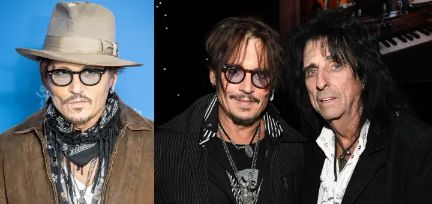Epic Ascent: Unveiling the Cinematic Mastery of 'The Dark Knight Rises'
4 min read
03 Jul 2024
"The Dark Knight Rises," the concluding chapter of Christopher Nolan's iconic Batman trilogy, stands as a cinematic masterpiece that transcends the boundaries of superhero storytelling. With its grandeur, depth, and emotional resonance, the film brings Bruce Wayne's journey as the Caped Crusader to a breathtaking culmination. The allure of "The Dark Knight Rises" lies in its exploration of themes ranging from heroism and sacrifice to societal collapse and redemption. This epic saga unfolds through a tapestry of characters, brilliant storytelling, and Nolan's signature cinematic prowess, leaving an indelible mark on both the superhero genre and cinema as a whole.
A Phoenix Reborn: The Hero's Resurgence
The central arc of "The Dark Knight Rises" revolves around Bruce Wayne's transformation from a recluse haunted by his past to the resurgence of Batman, a symbol of hope and justice. This journey of rebirth mirrors the film's larger themes of redemption and rising from adversity. Bruce's ascent from the depths of despair to reclaim his mantle as the Dark Knight resonates with audiences on a primal level, serving as a universal metaphor for personal transformation and the triumph of the human spirit.

Nolan's exploration of Bruce's physical and emotional struggle adds depth to the narrative, humanizing the hero and inviting viewers to empathize with his pain, determination, and eventual triumph.
Societal Collapse: The Descent into Chaos
"The Dark Knight Rises" delves into a world on the brink of collapse, as the villainous Bane exploits societal divisions to bring Gotham City to its knees. This reflection of societal unrest and the consequences of complacency adds layers of realism to the narrative. Bane's plan to dismantle societal structures echoes contemporary concerns, grounding the film's themes in a recognizable and thought-provoking context.
The portrayal of Gotham's descent into chaos is a stark reminder of the fragility of order and the responsibilities that come with maintaining a just society. Nolan's ability to intertwine these themes with the superhero narrative elevates "The Dark Knight Rises" beyond traditional genre boundaries.
Antagonist and Ideology: Bane's Impact
Bane, as portrayed by Tom Hardy, serves as a formidable adversary whose ideologies challenge Batman's convictions. Bane's charismatic yet ruthless demeanor, coupled with his nihilistic worldview, make him a compelling antagonist. His belief in tearing down the existing order to "give Gotham back to the people" adds complexity to his character, blurring the lines between hero and villain.
Bane's presence forces Batman to confront his own beliefs and question the effectiveness of his actions. This ideological clash raises questions about the nature of heroism, sacrifice, and the moral gray areas that often define complex narratives.
A Tapestry of Characters: Personal Journeys
Nolan's storytelling prowess shines through the diverse cast of characters, each with their own personal journeys. From Selina Kyle (Anne Hathaway), a morally ambiguous cat burglar, to Officer John Blake (Joseph Gordon-Levitt), a beacon of hope, the characters' individual narratives weave into the broader tapestry of Gotham's fate.
Alfred's (Michael Caine) emotional journey, in particular, adds a poignant layer to the film. His fears for Bruce's well-being and his ultimate decision to leave reflect themes of sacrifice and the challenges of mentorship. These character dynamics amplify the emotional resonance of "The Dark Knight Rises," transforming it into a saga of intertwined destinies.
Cinematic Spectacle: Visual Grandeur
Nolan's directorial prowess is on full display in "The Dark Knight Rises." The film's sweeping visuals, epic set pieces, and meticulously choreographed action sequences create a cinematic experience that is both breathtaking and visceral. The aerial hijacking of a plane, the climactic battle for Gotham, and the iconic Batpod chase all exemplify Nolan's commitment to crafting visually stunning scenes that serve the narrative's emotional beats.
Legacy of Hope: A Fitting Conclusion
As of my last knowledge update in September 2021, "The Dark Knight Rises" continues to be celebrated for its impact on the superhero genre and cinema at large. However, developments may have occurred since then. The film's legacy lies in its ability to serve as a fitting conclusion to Nolan's Batman trilogy—a saga that explored the human condition, societal challenges, and the complexities of heroism.
"The Dark Knight Rises" is not merely a superhero film; it's a reflection on the capacity for transformation, the struggle for redemption, and the enduring spirit of hope. Its allure stems from its ability to resonate with universal themes while delivering a cinematic spectacle that leaves audiences both exhilarated and contemplative. The journey of Bruce Wayne, as depicted in "The Dark Knight Rises," is a testament to the enduring power of storytelling to inspire, provoke, and captivate audiences around the world.
"The Dark Knight Rises" isn't just a conclusion—it's an emotional crescendo that elevates the superhero genre to new heights. Through its thematic depth, character journeys, and visual spectacle, the film redefines what it means to be a hero and reaffirms the transformative power of storytelling. Christopher Nolan's magnum opus serves as a reminder that, even in the darkest of times, the human spirit has the capacity to rise, triumph, and soar beyond the shadows.
More Articles

Leonardo DiCaprio and Vittoria Ceretti's Coffee Date Sparks Curiosity and Celebrity Speculation
4 min read | 02 Jun 2024

Alice Cooper's Perspective on Johnny Depp's Trial and the Shifting Sands of Public Perception
5 min read | 01 Jun 2024

The Afterparty' Director Teases Season 2 Murder Mystery and Unpredictable Finale Twist
4 min read | 31 May 2024